West coast LEadership Conference
The West Coast Leadership Conference (formerly known as “Ridin’ the Right Seat Conference”), is an annual conference dedicated to bringing in the best instructors in the American Fire Service to the Pacific Northwest. We have changed the name and goals of the conference to reach all levels of firefighters; from rookie Firefighter to Fire Chief. This year the conference will again be held in Spokane, WA and will feature two morning group lectures and individual afternoon classes.
What to Expect
The West Coast Leadership Conference has collaborated with the best instructors in the world to cover the most timely and important topics facing those in the fire service in 2025. More than a conference, our mission is to bring firefighters from all over the country together to create relationships and build far-reaching networks. Each day is followed with a group dinner and social gathering to foster comradery and build these social networks. If you don’t leave the conference recharged and inspired to be a better Firefighter, Fire Officer, or Fire Chief, we will give you your money back.
Evening Social Events
The evening social events are an opportunity to get dinner and some drinks with all the conference attendees including instructors.
Announcement Coming Soon!
When
May 12th, 13th, 14th, 2025
Where
Spokane, WA
Spokane Convention Center
334 West Spokane Falls Blvd
Lodging
Young Officers on Fire has secured significantly discounted rooms at the DoubleTree by Hilton Hotel Spokane City Center. There is a limited number of these rooms at the discounted price.
King Bed Standard = $129.00 per night
2 Queen Beds Standard = $129.00 per night
Conference Schedule
Morning Lectures 0830 – 1200
Monday 5/12/25
0830-1000: Chief Jason Hoevelmann, “Creating a Culture of Courage”
1030-1200: Asst. Chief Shaughn Maxwell , “TOPGUN: How the Best Get Better”
Tuesday 5/13/25
0830-1000: Dr. Kristine Medyanik, “Navigating Complexity: Tools for Facilitating Difficult Conversations and Decision Making
1030-1200: Battalion Chief (Ret.) Rob Fisher, “Followership”
Wednesday 5/14/25
0830-1000: James Johnson, “IAFF Residential Construction and Size-Up”
1030-1200: Asst. Chief (Ret.) Dan Shaw, “Creating a Culture of Excellence”
Afternoon Workshops 1300 - 1630
Workshop A:
Monday: Chief Jason Hoevelmann, “Leadership In Practice”
Tuesday: Dr. Kristine Medyanik, “Motivational Language: Navigating Change, Overcoming Biases, and Driving Performance Through Resistance”
Wednesday: JD DuCharme, “The Mission, Gen Z, and Me: Opportunities of a Modern Company Officer”
Workshop B:
Monday: Asst. Chief Shaughn Maxwell, “The Art and Science of Enhancing Fire Officer Readiness, Reliability, and Resilience”
Tuesday: Captain Clark Lamping, “Big Box…Big Problems”
Wednesday: Asst. Chief (Ret.) Dan Shaw, “The Command Mindset”
meet the speakers
LEARN ABOUT EACH INSTRUCTOR AND FIND THEIR CLASS DESCRIPTION BELOW
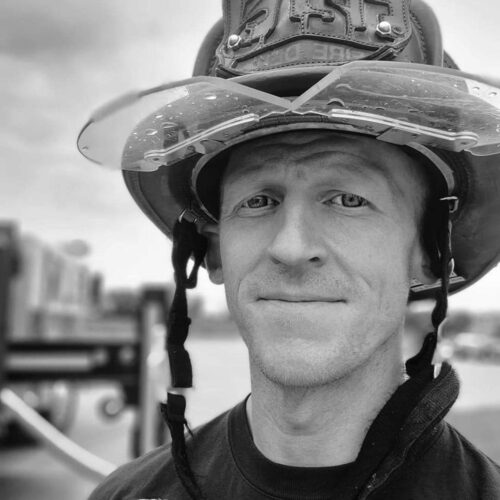
JD DeCharme
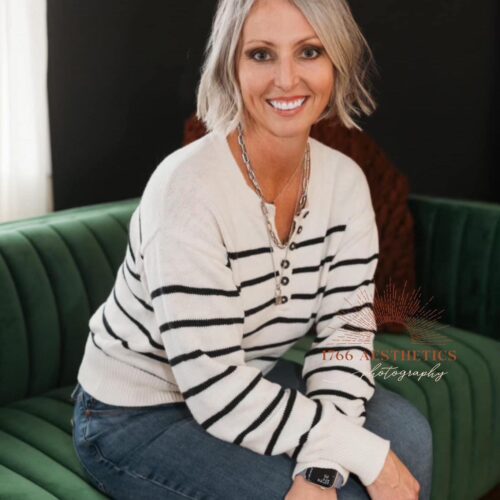
Kristine Medyanik
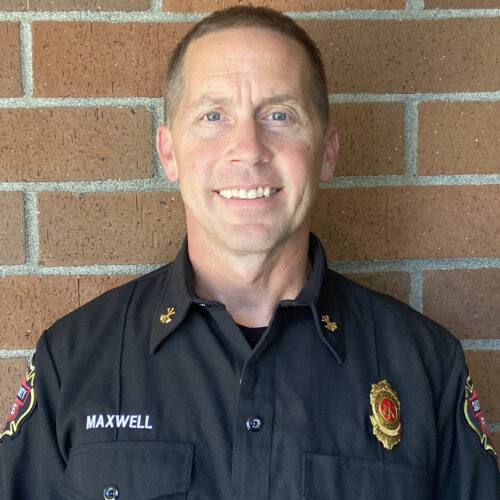
Shaughn Maxwell
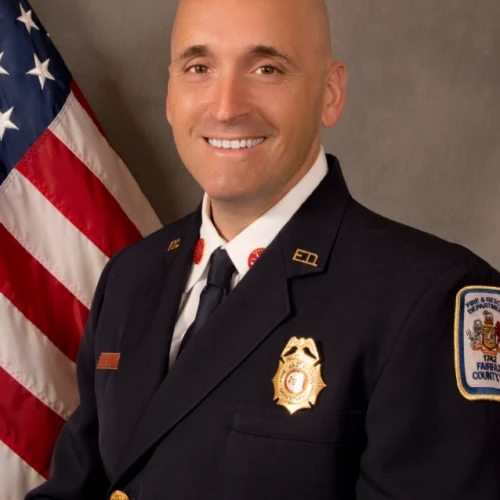
Dan Shaw
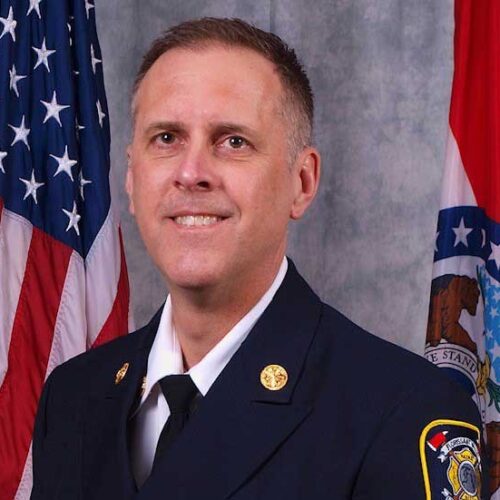
Jason Hoevelmann
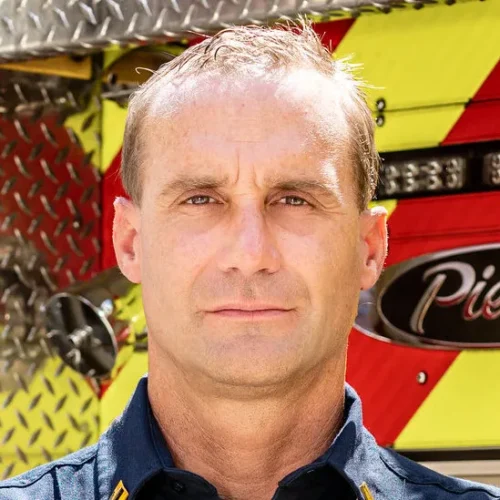
Clark Lamping
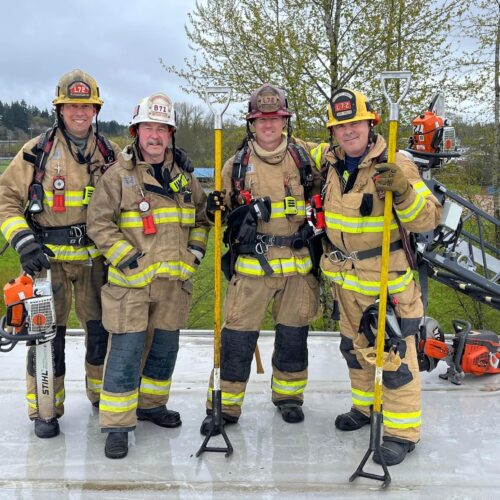
Rob Fisher
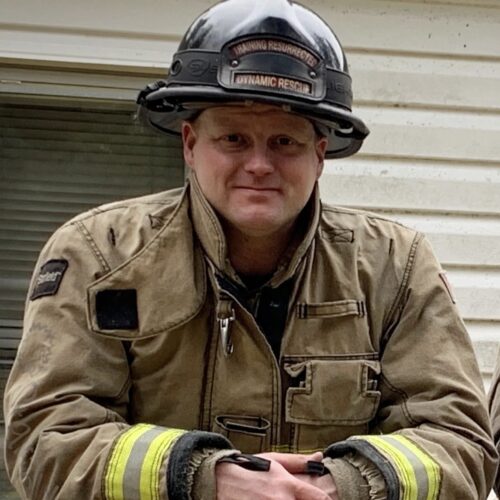
James Johnson

JD DeCharme
Instructor Bio: JD DuCharme is an 12 year veteran of the fire service. He shares lifes moments with his five children and his partner in crime, Danielle, and currently resides in Oconomowoc, WI. JD graduated Summa Cum Laude with a Bachelors Degree from UW Whitewater in 2006 and served as a Special Agent for the US Government from 2007 to 2013 before entering the Fire Service.
JD started as a volunteer firefighter in rural WI before becoming a career firefighter. JD promoted in 2023, and is currently a career Lieutenant on Truck 53 at a Suburban Fire District after serving with the Beaver Dam and City of Oshkosh Fire Departments.
JD was the training Trustee for the FOOLs from 2017 to 2022. He currently one of the organizers of the Sawdust City Fire Expo and Heart of the Lakes Fire Summit, and assists at multiple conferences across the country. JD has a passion for training and mentorship, and has been involved in developing multiple successful Fire Cadet and Leadership programs throughout the state, along with establishing training and family oriented cultures in his firehouse.
JD is open about his fire service evolution from problem finder with everything to say, to a problem mitigator with and inherent desire to listen and learn. From Misfit Toys to the Renegades of Rockwell, JD shares his experiences of growth in an open and honest forum.
Class Description: The Mission, Gen Z, and Me: Opportunities of a Modern Company Officer (3hrs)
The most important mission as firefighters, to save lives, has not changed throughout the generations. To instill this mission oriented mindset in the new generation, we must find new and intricate ways to pass along the values and tradition of our past through modern day channels.
Instead of putting the mission aside to place blame on a generation of new firefighters, we will discuss how to build a culture that gives your new team of firefighters their purpose through common mindset, trust through shared knowledge; and the firehouse family culture through training, “family time”, and conversations, not cell phone screens.
Through self reflection, we will ask, is this new generation the problem, or are they being LED down the wrong path by a lack of understanding, overload of information and lack of time investment by our line officers. We will then lay the path forward to successful execution of the mission.
It is time take a scalpel to our core to explore, the mission, generation z, and lessons learned through lived experiences to leave the service better for the future.

Kristine Medyanik
Instructor Bio: Dr. Kristine Medyanik is a renowned speaker and leadership expert, specializing in organizational psychology and business strategy. With over 15 years of teaching experience and a doctorate in Business, she has dedicated her career to helping individuals and organizations unlock their true potential. She’s also a full time business faculty with Corban University.
As the founder of Shattered Glass Leadership, Dr. Medyanik combines her deep knowledge of personality assessment, motivation, and brain science to create transformative retreats and workshops. Her unique approach allows participants to explore their goals, confront real challenges, and develop action plans for meaningful change in their lives. She’s passionate about our community and continues to champion leadership development in non-profits, small businesses and young women beginning their leadership journey.
Class Description: Navigating Complexity: Tools for Facilitating Difficult Conversations and Decision Making Session
This conference session delves into essential tools and strategies aimed at navigating challenging conversations and facilitating effective decision-making processes. As individuals and organizations grapple with increasingly complex issues, the need for robust frameworks becomes paramount.
Attendees will gain insights into communication techniques, conflict resolution models, and decision-making tools that foster collaboration, empathy, and informed choices. The session aims to equip participants with practical skills to address difficult conversations with confidence and enhance their ability to make well-informed decisions in complex scenarios.
Learning Outcomes “At the end of my presentation, participants will be able to:
- Enhanced Communication Skills: Attendees will develop a deeper understanding of effective communication techniques, enabling them to navigate challenging conversations with confidence and clarity. This may include active listening, empathetic communication, and assertive expression, leading to improved dialogue and understanding in both personal and professional settings.
- Conflict Resolution Proficiency: Participants will gain access to various conflict resolution models and strategies, empowering them to manage conflicts constructively and proactively. By learning how to identify, de-escalate, and resolve conflicts, attendees can foster healthier relationships, strengthen team dynamics, and mitigate potential disruptions within their organizations.
- Informed Decision-Making Capabilities: Through exposure to decision-making tools and frameworks, conference attendees will enhance their ability to make well-informed choices in complex scenarios.
By understanding factors such as risk assessment, stakeholder analysis, and consensus-building techniques, participants can make more confident decisions that align with organizational goals and values, ultimately driving better outcomes.
Class Description: Motivational Language: Navigating Change, Overcoming Biases, and Driving Performance Through Resistance
Workshop Summary:
This engaging half-day workshop focuses on the transformative power of motivational language in navigating change, overcoming decision biases, and enhancing team performance during challenging times. Participants will explore the significance of motivational language and its role in shaping perceptions and attitudes toward change.
The workshop will cover the psychology of change and the common emotional responses individuals face, along with an examination of decision biases that can hinder effective decision-making. Through interactive activities, participants will learn practical strategies for using motivational language to counteract these biases and address resistance within teams.
Participants will engage in participant dialogue and scenarios to practice their skills and develop a motivational language toolkit tailored to specific challenges. The workshop will also emphasize the importance of continuous improvement and feedback loops in effectively implementing motivational language in daily interactions.
By the end of the session, attendees will be equipped with actionable insights and techniques to foster a more positive and performance-driven environment within their organizations, empowering them to navigate change and drive success more effectively.

Shaughn Maxwell
Assistant Fire Chief, South Snohomish County Regional Fire Authority
Instructor Bio: Chief Maxwell has dedicated 35 years to the fire service, working in both urban and wildfire environments. He began his career in wilderness rescue and now serves as the executive officer of a large urban department north of Seattle, which responds to 40,000 calls annually. Shaughn holds a Bachelor of Science in Professional Development and a Master of Science in Human Factors (Performance) Psychology.
Passionate about optimizing human performance, Chief Maxwell extensively researches the methods and techniques used by elite operators and athletes. He integrates these insights with the science of human performance, focusing on enhancing responders’ capabilities in high-stress, high-consequence situations. His work bridges the art and science of elevating the performance of individuals serving under demanding conditions.
Chief Maxwell has conducted research at TOPGUN and the U.S. Coast Guard Advanced Helicopter Rescue School, and collaborated with NASA, FEMA, USFA, The White House, and other organizations. His contributions have earned multiple national awards for developing innovative best practices that enhance emergency response. His goal in human performance optimization is clear: “Make it easier for you to win and harder to fail.”
- How the fire service can use techniques from TOPGUN to elevate performance.
- Actionable insights to maximize the effectiveness of chief officers, company officers, and firefighters.
- How to turn experience into expertise, making it easier to succeed in your craft and career.
Class Description: TOPGUN: How the Best Get Better (1.5 hrs)
TOPGUN takes the top fighter pilots and makes them better. How can we apply these principles to elevate the performance of our top firefighters and officers?
Chief Maxwell spent time at TOPGUN researching this specific question. This presentation shares insights into how the fire service can adopt similar techniques to optimize performance, enhance learning, and cultivate the character traits of elite operators.
Attendees will learn:
- How the fire service can use techniques from TOPGUN to elevate performance.
- Actionable insights to maximize the effectiveness of chief officers, company officers, and firefighters.
- How to turn experience into expertise, making it easier to succeed in your craft and career.
Class Description: The Art and Science of Enhancing Fire Officer Readiness, Reliability, and Resilience (3 hrs)
The modern fire service faces increasing response complexity and stress, which can directly degrade health and performance. These challenges impact readiness, resilience, and reliability.
This presentation explores the art and science of human performance to elevate fire officer effectiveness during high-stress, high-consequence incidents. It introduces actionable measures and countermeasures that can be applied before, during, and after responses to enhance performance. These insights are based on the science of human performance and the techniques used by elite operators.
Attendees will learn to:
- Recognize how complexity and stress can impede or enhance human cognition and performance.
- Use reflection, feedback, and debriefing to drive expertise.
- Identify what exceptional operators do differently to improve performance.
- Apply science-backed techniques to build resilience, reliability, and readiness.

Dan Shaw
Instructor Bio: Dan has been a student of the fire service since 1992, starting in the fire service in Howard County, MD as a volunteer. In 1995, he was appointed to the Fairfax County Fire and Rescue Department, VA and has held every rank throughout his career. He retired in July 2024 as the Assistant Chief of Operations for the department. Dan also delivers fire service instruction around the country and taught at many national conferences covering firefighting, leadership, and officer development. He serves on the Fire Department Instructors Conference (FDIC) Advisory Board, is the chairman of the NFPA 1403 committee, and is a panel member for the Underwriter’s Laboratories Firefighter Safety Research Institute. He co-authored the book “25 to Survive: Reducing Residential Injuries and LODD” that was published in 2013 and has also written several articles for Fire Engineering Magazine.
Dan had the distinct honor of being the keynote speaker at FDIC International in 2022.
Class Description: Creating of Culture of Excellence
All firefighters and fire officers strive for excellence not only in themselves but also in the companies of personnel they lead and are responsible for every day. The solutions to achieve this elude many but this presentation/keynote aims to provide you the tools to help define your path to what equals success in the firehouse and on the fireground. This starts with the culture that exists within your company, firehouse, or fire department. This presentation will discuss leadership, training, small unit leadership, organizational leadership, and give you tools and techniques to evaluate and develop proven strategies to move you and your personnel towards excellence.
Class Description: The Command Mindset
Listed consistently in after action, close call, and line of duty death reports is the lack of clear command and control. What is not offered is the root causes of why sound and consistent command and control was not executed. Nor is training or clear and tangible examples an incident commander can use to understand where their command and control faltered or how they can improve. This class provides the “why” and the “how” behind becoming a better incident commander. Delivered from a 29-year veteran Chief officer that has served as a Company officer, Battalion Chief, Deputy Chief, and Chief of Operations in a large metro department that responds to over 130,000 incidents a year. Learning the fundamental building blocks that build and support a strong incident commander is paramount to operational success on the fireground. This class will cover leadership, impact of stress on your performance, 3 keys to strong and successful incident command, and how to terminate an incident correctly and provide feedback to foster future success.

Jason Hoevelmann
Instructor Bio: Jason Hoevelmann is the fire chief for the Florissant Valley Fire Protection District and is a 28-year career firefighter. Chief Hoevelmann is a contributor to Fire Engineering and serves on the FDIC Advisory Board. Chief Hoevelmann is the author of The New Company Officer and No Exceptions Leadership. Chief Hoevelmann holds an MBA in Public Administration and is a National Fire Academy EFO program graduate.
Class Description: Creating a Culture of Courage
In today’s fire service, courage is a necessity rather than a luxury. This interactive course, “Creating a Culture of Courage,” empowers leaders, managers, and team members with the mindset and tools to foster a culture where courage thrives. It also focuses on administrative and moral courage that is required not only on the fireground but just as importantly in how we lead and create our organizational environment and culture.
Participants will explore the foundations of courageous behavior, learn practical strategies for encouraging risk-taking and innovation, and understand the role of empathy and support in creating a safe environment for all. Through real-life examples, engaging discussions, and hands-on activities, attendees will leave with actionable insights and a renewed commitment to cultivating a courageous and resilient organizational culture.
Key Learning Objectives:
- Understand the principles and importance of courage in the workplace.
- Identify and overcome barriers to courageous behavior.
- Develop strategies to promote and sustain a culture of courage.
- Enhance empathetic leadership and build trust within teams.
- Inspire and motivate others to embrace change and take bold actions
Class Description: Leadership In Practice
This class will focus on the challenges we all face as leaders and officers in our organizations. We are constantly faced with familiar and unfamiliar difficulties beyond our operational responsibilities. These things will take a great deal of time and effort to prevent and mitigate. Leadership is not just a theory. For us to be effective, we must put leadership into practice. This class will provide discussions, experiences, and examples from research to identify where we can be better leaders by demonstration and action, not just through words and theory.
Leadership in the fire service is required in everything we do, and we cannot choose when to practice solid and effective leadership. Our biggest challenge to this is our desire and propensity to stay comfortable and convenient, shying away from difficult situations and conversations that put us at perceived risk. These instances of staying comfortable is where officers and leaders get into trouble. We will discuss topics to help identify how to avoid these pitfalls.
Some specific issues we will discuss include:
- Understand that our roles and responsibilities are now different after being promoted.
- We must understand that our perspectives must be different and forward-leaning due to our position.
- Identify where our formal authority comes from and how we can use it to further the mission and empower others.
- Understand the importance of loyalty to the mission, organization, members, and community.
- Exercising discernment and patience during crises and challenging situations requires practice.
- Understand that preparing your members is a high priority and not negotiable, as well as the consequences of not doing so.
- How do you handle difficult members, and what kinds of discipline are you responsible for and must exercise?
Removing and resisting administrative obstacles.
Creating trust and enthusiasm at all levels of our organizations.
“Never waste a crisis.” How to effectively lead in difficult times without overreacting.

Clark Lamping
Instructor Bio: Clark Lamping has been on the Clark County (NV) Fire Department for 27 years and has been a captain for 15. He has a master’s degree in Crisis and Emergency Management from the University of Nevada Las Vegas. Clark teaches classroom sessions and HOT in the US, Canada, and Europe. He is currently assigned to Firehouse 38B.
Class Description: Big Box….Big Problems
Did you know that, statistically speaking, we are 4X more likely to be killed in a commercial fire than in a residential fire? Have you heard that 41% of all maydays are called in commercial structures, yet only about 15% of our fires occur in these buildings? Were you aware that very few departments have a commercial fire SOP/SOG even though lack of policies or failure to follow existing policies is a reoccurring theme of FF LOOD? Did you realize that the underlying cause of the majority of LODD is firefighters taking residential tactics and strategies into a commercial building?
Big Box, Big Problem will examine the following:
- Classifications of commercial buildings
- The difference between residential and commercial buildings
- Developing and refining large commercial situational awareness
- Tactical considerations for operating in large commercial buildings
- A review of several near misses and LODDs in commercial buildings
The content for this class comes from not only my own personal experience, but also input from several fire service professionals, authors, and instructors from across the United States. My goal is to ensure that the students fully understand the dangers of operating on these high consequence-low frequency fires and adjust their tactics accordingly.

Rob Fisher
Instructor Bio: Rob “Robbie” Fisher is a suburban firefighter from the Pacific Northwest. He has been a student of the fire service for 35 years. Rob is currently a Battalion Chief with a medium-sized suburban department 25 miles north of Seattle in Snohomish County. Prior to being promoted to Battalion Chief, Rob spent 20 years as a company officer, fifteen of those years assigned to the department’s only ladder company. He is a member of his county’s regional technical rescue team. Most recently, Chief Fisher was assigned as the Chief of the Snohomish County Fire Training Academy. Chief Fisher instructs with multiple groups outside of work. He is affiliated with Brothers In Battle, County Fire Tactics, Roof Pervs, and the Highwaymen. He co-administers a few social media groups focused on truck company operations and is the co-founder of Young Officers on Fire. Rob has been an active member with the F.O.O.L.S. since 2002. He is active with his local chapter, the Puget Sound F.O.O.L.S. Robbie has been on the International’s E-board since 2013 as the Education/Training Chair. In 2022, he accepted a new position within the International as the West Coast Region Representative.

James Johnson
Instructor Bio: James Johnson is a firefighter in Vancouver, British Columbia, Canada. Before becoming a career firefighter, James worked in the construction trades and completed an apprenticeship as a Red Seal Journeyman Carpenter. James teaches extensively on the subject of building construction and represents the International Association of Fire Fighters as a Building Codes and Standards Representative.
Class Description: IAFF Residential Construction and Size-Up
This class is the in-person version of a new online program created and offered by the International Association of Fire Fighters. This class provides a framework for firefighters to use during the size-up of a residential structure fire, and provides tangible takeaways and tactical considerations based on the building’s era, materials, and occupancy. This class is intended for fire service personnel of all ranks and experience levels.

